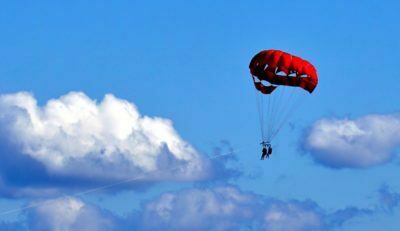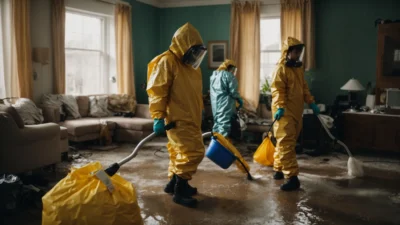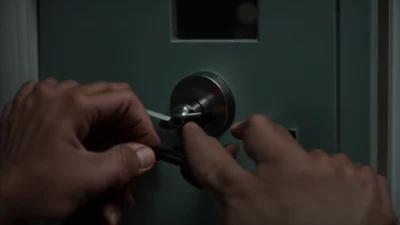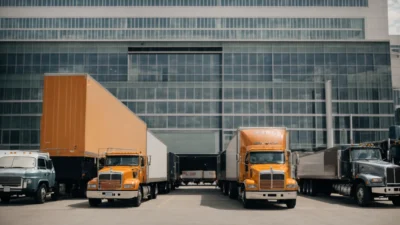Last winter’s ice storm left many Aurora homeowners staring at damaged fencing, wondering if they could have avoided the costly repairs and replacements. Trusted aluminum fence installation services in Aurora, IL, become invaluable when harsh Illinois weather puts backyard barriers to the ultimate test. Illinois winters don’t just challenge heating bills—they wage war on outdoor structures, particularly fencing that lacks proper weather resistance.
Temperature swings from sub-zero January nights to mild spring days create a cycle of expansion and contraction that can destroy poorly chosen materials. Add heavy snowfall, ice accumulation, and fierce wind storms, and Aurora homeowners face a perfect storm of conditions that separate quality fencing from budget mistakes.
Illinois Winter Weather: The Real Challenge
Aurora’s location in the Fox River Valley exposes properties to some of the Midwest’s most demanding weather patterns. Winter temperatures regularly plummet below zero, while spring brings rapid thaws that create freeze-thaw cycles particularly damaging to certain fence materials.
The region experiences an average of 38 inches of snowfall annually, with periodic ice storms that coat structures in heavy, destructive layers. These conditions create unique stresses on fencing systems. Temperature fluctuations between -20°F and 40°F within weeks create expansion and contraction pressures that weaker materials simply cannot handle.
Wind patterns across the prairie landscape can reach destructive speeds during winter storms, testing fence posts and panels with sustained pressure and sudden gusts. The combination of moisture from snow and ice, temperature extremes, and wind creates an environment where only properly engineered materials survive intact.
Material Performance in Harsh Climates
Wood Fencing Limitations
Wood fencing appeals to many homeowners for its traditional appearance and initial affordability, but Illinois winters expose serious weaknesses. Moisture absorption during snow and ice events leads to expansion, while subsequent freezing causes splitting and warping. The freeze-thaw cycle creates internal stress that manifests as cracking, particularly around fasteners and joints.
Wood requires extensive annual maintenance including staining, sealing, and replacing damaged boards. Even pressure-treated lumber shows deterioration within three to five years under constant exposure to Aurora’s climate extremes. Fence posts often fail at the ground line where moisture accumulates and freezes repeatedly.
Vinyl Fencing Challenges
Vinyl fencing markets itself as low-maintenance, and it does resist moisture better than wood. However, extreme cold temperatures reveal vinyl’s brittleness problem. When temperatures drop below 10°F, vinyl becomes rigid and prone to cracking under impact or stress.
The material’s expansion and contraction rate exceeds that of aluminum, creating gaps and stress points over time. Vinyl panels can become loose in their frames, and the mounting hardware often fails before the panels themselves. Color fading from UV exposure becomes more pronounced when combined with freeze-thaw cycles.
Aluminum Fence Advantages
Aluminum fences outperform other materials in harsh weather conditions through superior engineering and material properties. Unlike vinyl, aluminum maintains flexibility in extreme cold, allowing it to bend without breaking under wind pressure or impact. The material’s thermal expansion rate remains minimal, preventing the stress-related failures common in other materials.
Powder coating provides a protective barrier that bonds molecularly with aluminum, creating a surface that resists moisture penetration, UV damage, and temperature fluctuations. This coating system maintains integrity through repeated freeze-thaw cycles, unlike paint or stain that cracks and peels.
Why Aluminum Excels in Illinois Winters
Aluminum’s natural properties make it ideal for harsh climate applications. The material forms a thin oxide layer when exposed to air, providing inherent corrosion resistance that prevents rust formation. This natural protection works continuously, unlike coatings that can be damaged or worn away.
Temperature stability sets aluminum apart from vinyl and wood alternatives. While vinyl becomes brittle in cold and wood absorbs moisture that freezes and expands, aluminum maintains consistent strength and flexibility across temperature ranges. The material can handle Aurora’s -20°F winter nights and 40°F spring days without structural compromise.
Wind and impact resistance come from aluminum’s engineered flexibility. Rather than breaking under stress like rigid materials, aluminum fences bend and return to their original shape. This flexibility prevents catastrophic failure during storms while maintaining structural integrity over decades.
Maintenance requirements for aluminum fence installation remain minimal compared to wood alternatives. No seasonal treatments, staining, or board replacement schedules exist. Occasional cleaning with water removes dirt and debris, while the powder coating maintains protection and appearance for years.
Professional Installation Considerations
Proper installation techniques make the difference between a fence that survives Illinois winters and one that fails within seasons. Foundation work must account for frost line depth, typically 42 inches in the Aurora area. Post setting requires specific techniques to prevent frost heaving and settling.
Drainage becomes particularly important in Illinois soil conditions. Clay soils common in the area retain moisture, creating hydrostatic pressure against posts during freeze-thaw cycles. Professional installers understand these local conditions and adjust techniques accordingly.
Local expertise matters when choosing aluminum fence builders. Aurora’s specific climate challenges require knowledge of soil conditions, frost lines, and local building codes. Experienced contractors understand how to space posts, select appropriate hardware, and orient panels to minimize wind load.
Midwest Legacy Fence & Deck brings decades of experience working with Aurora’s unique climate challenges, understanding both the technical requirements and aesthetic preferences of local homeowners. Their installation teams know how to build aluminum fences that withstand Illinois weather while meeting local code requirements.
Maintenance for Long-Term Performance
Aluminum fences require minimal maintenance compared to wood or vinyl alternatives, but simple care extends their lifespan even further. Pre-winter inspection identifies any loose hardware or minor damage that could worsen during storm season.
Seasonal cleaning removes accumulated dirt and debris that can trap moisture against the fence surface. A simple rinse with water and mild soap maintains the powder coating’s protective properties. Avoid pressure washing, which can damage the coating, and harsh chemicals that might cause discoloration.
Post-storm inspection identifies any damage early, when repairs remain simple and inexpensive. Look for bent panels, loose posts, or damaged hardware. Most aluminum fence damage can be repaired by replacing individual components rather than entire sections.
Spring maintenance involves checking post stability and cleaning accumulated debris from the base. Snow and ice can shift soil around posts, so checking for movement after thaw prevents larger problems later.
Making the Right Choice for Aurora Homes
Quality aluminum fences represent a smart investment for Aurora homeowners facing Illinois weather challenges. The material’s weather resistance, combined with professional installation, creates fencing that performs reliably for decades with minimal maintenance.
Material choice affects not just initial appearance but long-term performance and cost. While wood fencing might cost less initially, replacement and maintenance expenses over time often exceed aluminum’s upfront investment. Vinyl’s temperature limitations make it unsuitable for Aurora’s extreme climate variations.
Professional installation ensures proper foundation work, appropriate hardware selection, and compliance with local building codes. Working with experienced aluminum fence builders who understand local conditions prevents common installation mistakes that lead to premature failure.
When harsh Illinois weather threatens your property’s fencing, aluminum provides the durability and weather resistance that wood and vinyl cannot match. The investment in quality materials and professional installation pays dividends through decades of reliable performance, even during Aurora’s most challenging winter conditions.









